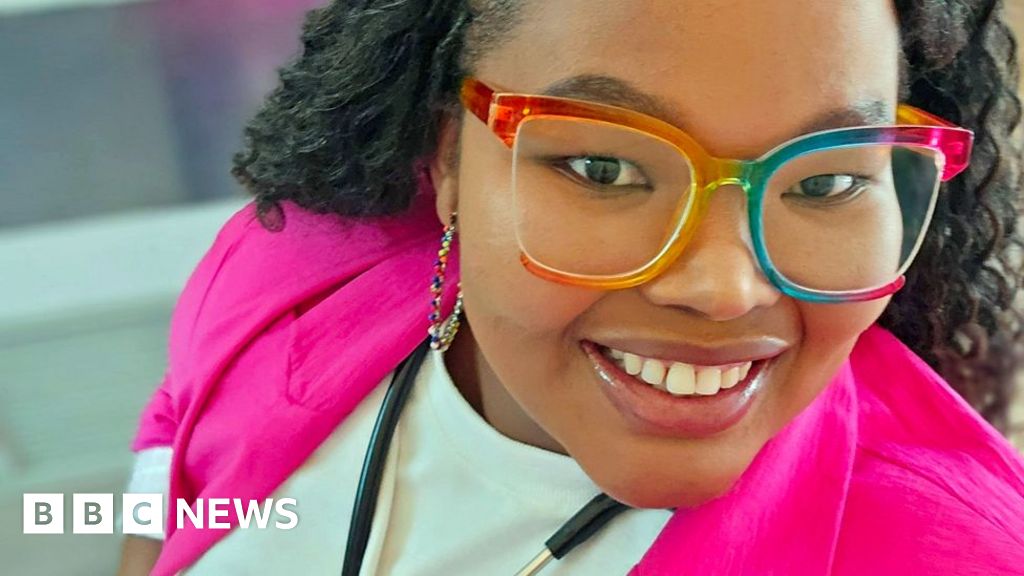The Impact of Federal Grant Cuts on Public Health Research: A Call to Action

Dr. Katie Edwards, a noted professor of social work at the University of Michigan, stands at the forefront of a research endeavor that seeks to address critical issues affecting vulnerable populations. Recently, she faced a disheartening setback when her lab lost six grants funded by the National Institutes of Health (NIH). This loss is not merely a financial blow; it threatens the very foundation of her work, which focuses on violence prevention and positive youth development, particularly within LGBTQ+ communities and racial and ethnic minority groups. These topics have been controversially labeled as 'DEI' (Diversity, Equity, and Inclusion) and 'gender ideology' by the current administration, leading to the termination of funding.
Dr. Edwards has dedicated countless hours to exploring alternative funding strategies, writing appeals to the NIH, and even resorting to legal actions against the NIH and the Department of Health and Human Services in an attempt to recover lost grants. Such measures underline a troubling trend in public health research, where the focus on marginalized communities is being jeopardized by political agendas. She reflects on a crucial missed opportunity for researchers to better communicate the significance of their work to the American public, suggesting that had there been a stronger public outcry, the current administration might not have so readily undermined vital public health research.
The work conducted in her lab is rooted in compassion and a desire to create safer environmentshomes, schools, and communitiesfor all individuals across the United States. Dr. Edwards emphasizes that the cessation of this research could have devastating consequences, particularly for those who are most vulnerable. Public health research is essential for all Americans, and it often requires targeted studies focusing on minority populations. This is vital because not everyone receives the same care or attention in the country. For instance, factors influencing violence risk for heterosexual teens may differ significantly from those affecting LGBTQ+ teens. Similarly, the resources available to various racial and ethnic groups can vary markedly, underscoring the need for specialized research aimed at understanding these disparities.
Dr. Edwards points out that a uniform approach to public health issues such as violence, mental health concerns, and substance abuse is often ineffective. Creating inclusive research environments that acknowledge diverse identities fosters a richer understanding of health disparities and ultimately leads to more trustworthy outcomes. The studies she oversees strive to bridge the gap between majority and minority experiences in terms of physical, mental, and social health.
In one poignant instance, a participant in a study focused on sexual assault among sexual minority men expressed gratitude for the inclusive space created for LGBTQIA2S+ individuals, emphasizing how it made him feel valued and secure. This sentiment highlights the importance of ensuring that public health research is accessible and beneficial to everyone, particularly marginalized groups.
LGBTQ+ youth, who represent approximately 10% of the youth population in the United States, and racial and ethnic minority youth, making up nearly half, are disproportionately affected by violence and often face significant barriers in accessing support services. Dr. Edwards warns that the termination of funding for tailored programs could lead to dire consequences, including increased incidents of violence, suicide, mental health crises, and substance abuse among these populations. The letters she received from the NIH indicated that research focusing on these groups was deemed not to align with the administrations priorities, further deepening the sense of neglect felt by these communities.
Dr. Edwards stresses that most people in the U.S. have at least one connection to someone who identifies as LGBTQ+, whether its a student, a neighbor, or a family member. These individuals and their families deserve access to high-quality preventive services and treatments. In another terminated NIH-funded project evaluating an online mentoring program for transgender youth, one participant expressed how crucial the support from mentors has been for their well-being, stating, My mentors encouragement helped me feel seen and not alone.
The abrupt termination of these studies not only jeopardizes the health of vulnerable individuals but also results in significant financial repercussions. The estimated lifetime cost associated with each victim of sexual violence surpasses $122,000, encompassing medical expenses, lost productivity, and other costs. By withdrawing funding for crucial research on sexual assault, the risks of such incidents will likely rise, subsequently increasing the financial burden on society. In addition, the broader implications of this decision could lead to unsafe environments in various settings, including schools, workplaces, and communities, where the potential for violence and abuse could escalate.
Moreover, the impact of funding cuts extends beyond just the research; they threaten the livelihoods of dedicated professionals. Dr. Edwards leads a team of over 50 individuals who come from diverse backgrounds, including young adults, elders, and members of the LGBTQ+ community. Many of her staff are motivated to contribute to this work to prevent future generations from experiencing the adversities they faced themselves. A Native American elder within Dr. Edwards' lab poignantly remarked, This work is the destiny of our people, highlighting the importance of culturally sensitive research that addresses the trauma faced by Native Americans and actively seeks to provide empowerment and protection for youth.
As Dr. Edwards contemplates the impending layoffs of her staff and the cessation of their life-saving projects, she grapples with an overwhelming sense of helplessness. She emphasizes that her motivation has never been solely about securing grants or academic recognition; rather, it has always been about making a meaningful difference in the world. Despite the recent turmoil, she has found some solace in the solidarity and care shared among her team. This experience has led to unexpected transformations within her family, sparking newfound activism among her previously politically apathetic parents, who now advocate on her behalf and mobilize support for public health initiatives.
In her personal life, Dr. Edwards has leaned heavily on the support of her wife, who has been a comforting presence during this tumultuous period. Their bond has only deepened in the face of adversity, serving as a reminder of the enduring love that persists despite external pressures. As she reflects on the broader implications of these funding cuts, Dr. Edwards holds onto hope that those affected by the erosion of public health research can find their own resilience and strength. However, she remains acutely aware of the impending risks faced by vulnerable populations.
Dr. Edwards concludes with a powerful call to action, urging readers to recognize the invaluable contributions of public health research to their lives. For anyone who has benefited from advancements in healthcare, mental health support, or preventative care, much of that progress has been informed by NIH-funded research, which is now at grave risk. She encourages individuals to take proactive steps to advocate for the reinstatement of funding for vital public health initiatives, emphasizing that everyone stands to gain from a healthier society.
Dr. Katie Edwards is not just an advocate for her research; she is a voice for those whose stories often go unheard. She underscores that the work being done in her lab is about more than just academic success; it's about creating a safer, more equitable world for everyone. The ongoing challenges may seem formidable, but the collective power of advocacy and awareness could very well turn the tide for public health research in the United States.
For those interested in supporting this cause or learning more about the impact of public health research, Dr. Edwards invites you to explore the NIH Reporter, where you can discover the life-changing work being conducted across the nation. Your voice matters in the fight for the future of public health research.
























